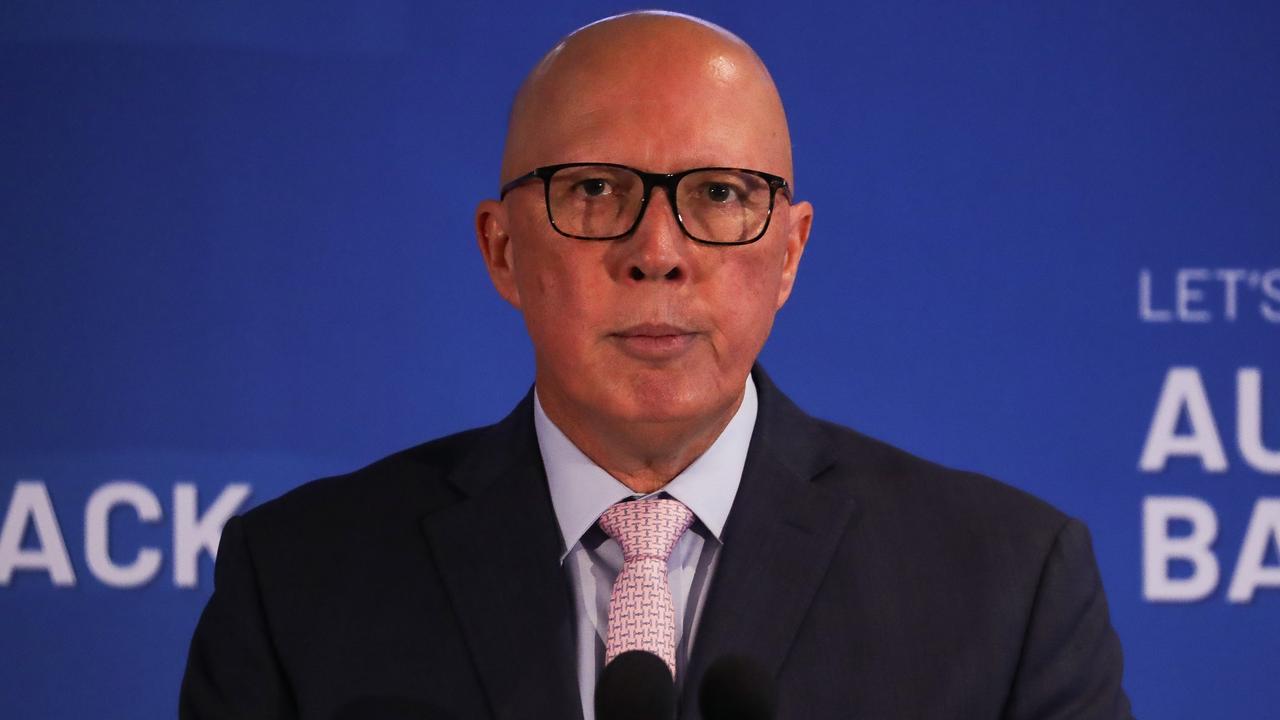Australians furious over the cost of carbon neutral food
‘Carbon neutral’ meat is increasingly appearing on supermarket shelves – but shoppers are furious over the prices being charged. Have your say.
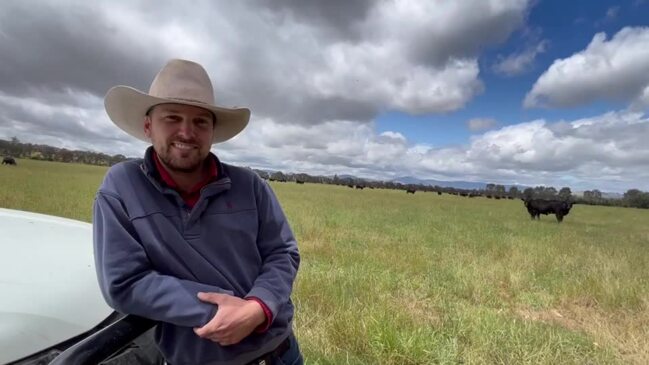
National
Don't miss out on the headlines from National. Followed categories will be added to My News.
Exclusive: Environmentally conscious shoppers are putting their money where their mouth is, spending up big on carbon neutral food at the supermarket.
But the increased costs have provoked fury among other shoppers, who are incredulous that some Australians are choosing to pay an extra $6 per kilo for carbon neutral beef, an extra $3 per kilo for carbon neutral pork, and nearly $10 for a dozen carbon neutral eggs.
“Utter nonsense – We are being played,” one News Corp reader commented.
“Fools and their money are so easily parted,” another stated.
Other readers expressed confusion about what carbon neutral meat is, given livestock produces methane, a powerful greenhouse gas. Others doubted the validity of certification schemes, or accused the supermarkets of price gouging.
Carbon neutral products are created by calculating the emissions involved in their creation, and offsetting them with carbon-crediting schemes. In Australia, the certification of this process is conducted by the government/industry alliance Climate Active.
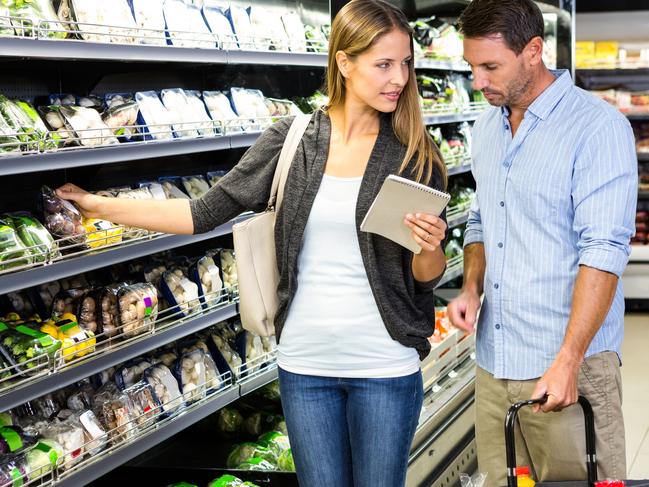
And there could be more carbon neutral products coming to the supermarkets soon, with more and more Australian farmers looking to reduce their emissions.
On Monday, federal independent MP for Indi Helen Haines will move a motion in parliament calling for the government to fund 200 agricultural scientists, who would provide expert advice to farmers on how they could drive down their emissions — and ultimately the cost of clean, green products.
“I’ve been hearing from farmers for some time that they have an acute awareness of their need to contribute to emissions reduction across the country; they’re fully aware that agriculture contributes 16 per cent of Australia’s total emissions,” Ms Haines said.
“(Farmers) also know that in order to participate in global markets they will need to demonstrate carbon neutrality. But they need assistance in translating the science into practice.”
Ms Haines will also tell parliament that farmers should be able to “certify their products as net-zero through a dedicated carbon neutral certification standard”.
To date, just 19 Australian businesses with agricultural interests have had their operations deemed carbon neutral through the official certifying body Carbon Active, although a number of farmers have achieved that goal for individual products. Certification generally takes between 6-12 months and can cost anywhere between $861 and nearly $20,000 annually.
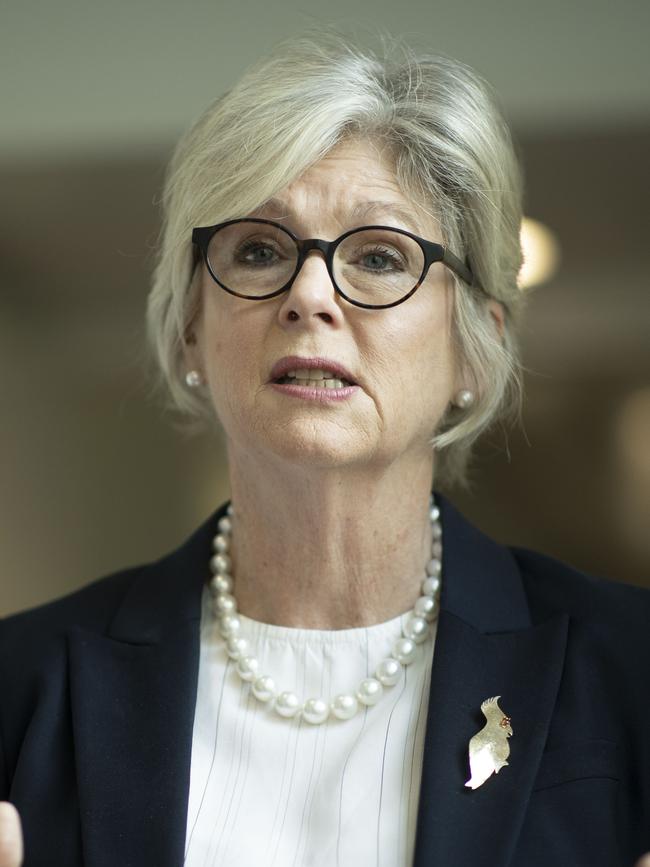

Coles relies on 15 suppliers for its certified carbon neutral beef range which debuted late last year with a range of seven premium cuts.
A spokesperson for Coles said they were “very impressed by our customers’ response” to the range, which is set to be expanded to all states and territories in May.
Despite the cost of living crisis afflicting many Aussie families, some consumers are clearly happy to pay extra for a climate neutral product. In the meat category alone, retailers are selling carbon neutral beef for an extra $6 per kilo, while carbon neutral pork is fetching an extra $3 per kilo.
Pork Australia CEO Margo Andrae said Australian pork producers were working hard to lower the emissions of their product. And while those efforts contributed to increasing consumer prices, there were also escalating costs for farmers in terms of labour and biosecurity measures, she said – and these also flowed on to the end purchaser.
Ms Haines said the cost of ensuring a product was carbon neutral would flow on to consumers, but “over time those costs will begin to be reduced” because of economies of scale.
With federal parliament set to debate the government’s safeguard mechanism this week, Ms Haines said farmers could help provide the offsets for the high-emitting industries targeted by the legislation, but more needed to be done for this to be realised.
“I’m putting it to the parliament that we need a whole lot more for the agriculture sector if we are relying on carbon offsetting,” she said. “One of the elements of that is that farmers won’t necessarily wish to sell their carbon offsets, because they know they will need them themselves in order to be certified carbon neutral, particularly anyone with livestock.”
BUYING NET ZERO: WHAT IT COSTS
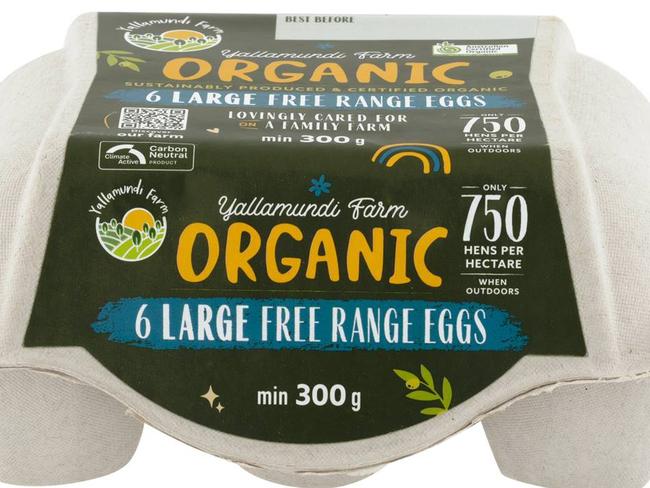
Eggs (through woolworths.com.au)
Yallamundi brand certified carbon neutral extra large eggs 700g: $9.70 per dozen
Simply Eggs brand extra large eggs 700g: $4.60 per dozen
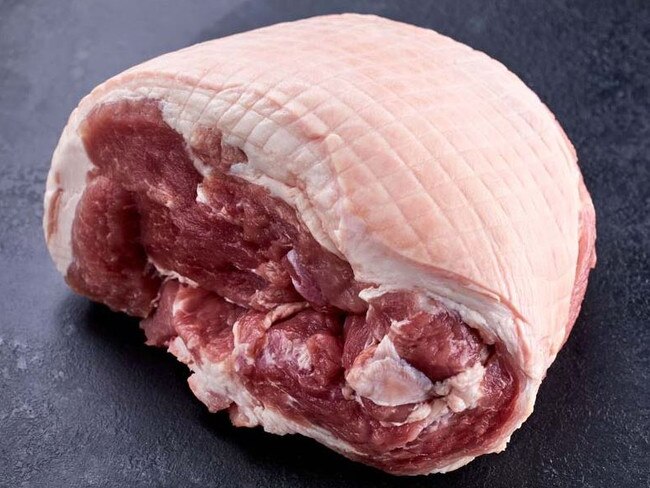
Pork (via meatemporium.com.au)
Borrowdale brand certified carbon neutral pork shoulder (boned and rolled): $14.99 per kg
Bruemar brand pork shoulder (boned and rolled): $11.99 per kg
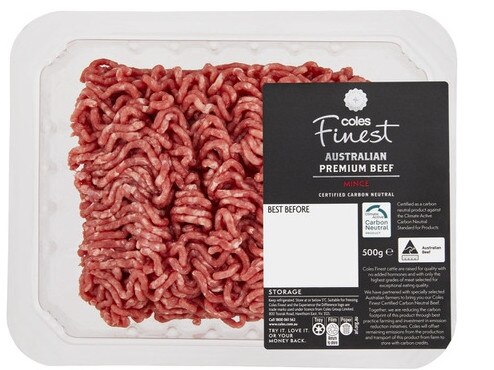
Beef mince (via coles.com.au)
Coles carbon neutral certified beef mince: $10.50 for 500g through coles.com.au
Coles 5-star extra lean beef mince: $10.50 for 500g through coles.com.au
Coles 3-star beef mince: $7.00 for 500g through coles.com.au
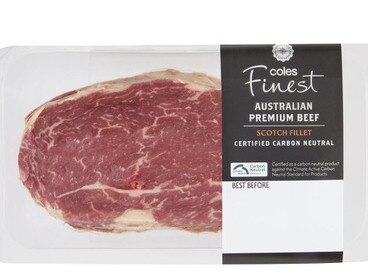
Scotch fillet steak (via coles.com.au)
Coles Finest Carbon Neutral brand certified scotch fillet steak: $58.67 per kg
Coles Graze Grassfed brand scotch fillet steak: $52 per kg
Coles brand regular scotch fillet teak: $43.75 per kg





